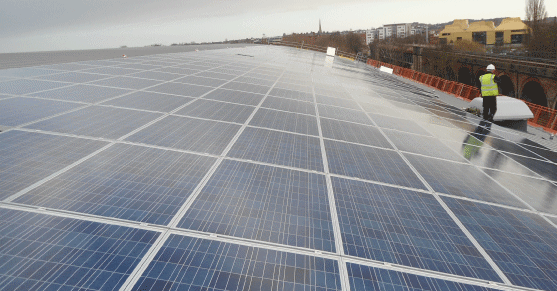Having declared a climate emergency in July 2019 and adopted net zero carbon targets by 2030 in September 2020 we are now actively working with Midlands Net Zero Hub, Worcestershire Local Enterprise Partnership, Worcestershire County Council and Worcester City Council to develop decarbonisation strategies.
Our Heat Decarbonisation Plan sets out our desire to look at collaborative district heating opportunities and possible heat sources. A Citywide Heat network study is underway. Our energy and water strategy sets out our approach and we continue to invest in our buildings with costed energy action plans, some example projects for 2024/25 include improved data quality updating gas and electricity sub meters, data visualisation using Power BI, auto shut down AV screens, £57, 000 integration of energy sub-metering into the Building Management System, and continued investment in solar thermal PV and LED lighting.
We received £23,862 Heat Network Efficiency Scheme funding to deliver an optimisation study of our St John's campus heat network, and this will feed into the city-wide heat network study. The Dukes building (see construction page) is heated by 3 75.8 kW air source heat pumps and achieved an EPC A rating.
An Energy Committee was established in 2022 to reflect the elevated priority of reducing energy consumption in the face of an energy price crisis. Chaired by the Pro Vice Chancellor Finance and Resources the Energy Committee provides strategic oversight of energy management at the University, with particular focus on identifying and resourcing opportunities to reduce energy consumption and to generate energy on-site. This reports directly to the University Executive Board.
View our Display Energy Certificates (DECs)

Energy Management System (ISO 50001)
The University has had an Energy Management System (EnMS) certified to ISO 50001 since 2020. The EnMS provides a framework for energy management at the University and ensures that actions are taken to reduce energy consumption, and that energy efficiency is considered during our procurement and design processes.
A surveillance audit of our EnMS took place in November 2024. Our next recertification audit will take place in November 2026.
Energy SMART Targets
Our current targets and some examples of how we are going to achieve them can be accessed through the sustainability targets document.
